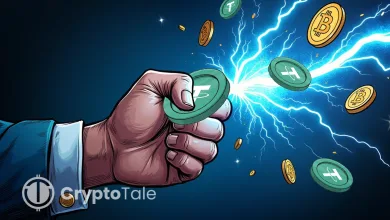IMF Rejects Pakistan’s 2000MW Bitcoin Mining Plan: Report

- IMF rejects Pakistan’s plan to subsidize power for crypto and heavy industries.
- The proposal to attract foreign investment through 2,000 MW of crypto mining has been blocked.
- IMF cites market distortion, legal risks, and lack of prior consultation as key concerns.
Pakistan’s proposal to subsidize electricity for crypto miners, data centers, and heavy industries has been rejected by the International Monetary Fund (IMF). Dr. Fakhray Alam Irfan, Secretary of Power, informed the Senate Standing Committee on Power that excess electricity is available during winter, which could be allocated to energy-intensive industries. Still, the IMF remains opposed due to concerns over market distortions. The rejection was officially conveyed on July 3.
Pakistan proposed a plan to allocate 2,000 megawatts of energy for cryptocurrency mining. The strategy aims to attract international investors and drive digital innovation. However, the proposal was not taken up by the IMF.
The rejection came during a meeting chaired by Senator Mohsin Aziz. Dr. Irfan stated that Pakistan is still engaged in talks with international institutions. The objective is to revise the energy subsidy plan to meet global standards. These efforts continue despite the IMF’s current position.
The IMF cited the risk of resource misallocation and tariff imbalance. It also raised legal concerns about subsidizing crypto activities. Officials highlighted that subsidizing energy for high-consumption sectors may disrupt the electricity market. No consultation was made with the IMF before announcing the mining initiative.
Government Reforms Power Subsidies, Launches New Billing App
To tackle billing issues, the government launched the “Apna Meter Apni Reading” application. It enables users to self-report meter readings. Dr. Irfan said the app will soon be introduced to K-Electric consumers.
Currently, 58% of consumers pay a subsidized rate of Rs. 10 per unit. This is significantly below the actual cost of electricity. The government plans to allocate Rs. 250 billion in subsidies this year. The IMF has long opposed untargeted subsidies, citing fiscal pressure.
Efforts are also underway to reduce electricity theft. New technologies are being deployed to detect and stop illegal connections. The Power Division is expanding anti-theft systems nationwide. These steps are part of broader energy sector reforms.
Related: Pakistan Eyes Surplus Electricity to Boost Bitcoin Mining
Pakistan Pushes Crypto Rules Amid IMF Concerns
In the meantime, Pakistan has introduced efforts to regulate the crypto industry. In May, the government introduced the Pakistan Digital Assets Authority (PDAA). The aim is to establish transparent regulations regarding digital asset currencies. Such steps will establish a legal system of crypto transactions.
In June 2025, the government introduced new cryptocurrency regulations aimed at supporting the creation of a national Bitcoin reserve. The move reflected the country’s increasing focus on blockchain innovation. However, the IMF criticized the proposal following its submission.
The IMF warned that crypto mining could strain the national power grid and complicate resource allocation. This added pressure might lead to higher electricity tariffs for ordinary consumers. The Fund also noted that the proposal was introduced without proper consultation.
The Senate Committee has requested that the Power Division present a revised energy policy. The updated plan must address the IMF’s objections. Officials must also clarify how subsidies will be handled moving forward. The committee expects answers in the next session.
Pakistan is at a crossroads. Its desire to modernize the economy through crypto is evident. However, this must be balanced with economic stability and international agreements. The IMF’s rejection signals the need for a more coordinated and cautious approach.




